|
Its Christmas time and we’re all getting ready to celebrate. Finishing work tasks to get everything sorted before the holidays start, then running around with shopping for gifts and the planning of the dinner so it can be a tad stressful. It really is the most wonderful time of the year as the song says but it can also end up becoming a burden to our health.
So here are some Traditional Chinese Medicine self-help tips to see you through the season. 1. Don’t forget to breath When we become stressed we naturally hold our breath, our breathing becomes shallow and rapid so when you begin to feel stressed focus on your breath. This can be done anywhere and anytime, you could be in work in your chair, in the queue in the shops, or you can also do this last thing at night when you do get to finally go to bed. So get comfortable, lengthen your back and rotate your shoulders forward, backwards and up and down. Now concentrate on opening your chest and take nice normal breaths, you can lengthen the breath if it feels comfortable. By doing this it is impossible to remain tense after a couple of minutes. 2. Go for a Walk Walking is a great way to de-stress and better still do it outdoors. Take a look at your environment, if you are near trees look at them, the grass, if you are on the beach notice the other people walking along with their families and dogs. By doing this you are moving your mind away from your own stress and negative thoughts. 3. Go with the flow Christmas can be fun and chaos filled so rather than resisting it try to go with the flow. In Chinese Medicine the smooth and free flow of Qi results in a happy and healthy body. When Qi stagnates it results in pain and weakened immune health and none of us want that. So when traffic is bad, you’re running late, the last Elsa doll has been bought, the in-laws have landed, pretty much things you can do little about, stop, breath and go with the flow and enjoy. 4. Sleepy Time Sleep is the time that the body gets to regenerate and repair and when we are stressed it can be more difficult to get a good night’s sleep. Try not to eat too late into the evening as a full tummy can make it difficult to get to sleep as the body is busy digesting. A nice bath can also help prepare the body for sleep, why not try adding some Epsom salts and a few drops of lavender oil. 5. Acupuncture Let Acupuncture help take all that stress away. It is excellent for relaxing people. Stress can snowball so pop that bubble with some acupuncture before it gets out of hand. Contact Niamh at Anam Mai Acupuncture to discuss how acupuncture could help you
0 Comments
It is now definitely autumn and all the lovely crisp leaves are falling and the nights are closing in. It’s a time for soups and stews, scarf’s and snuggling up on the couch warm and snug in out of the elements. It is unfortunately also a time for sniffles, coughs and colds.
Acupuncture for Prevention Acupuncture & Traditional Chinese medicine can prevent colds and flu by building up the immune system with just a few needles inserted into key points along the body's energy pathways. These points are known for strengthening the circulation of blood and energy and for reinforcing the outer defence layers of the skin and muscle so that germs and viruses cannot enter into the body. Studies have shown that certain blood counts and immune enhancing chemicals stay elevated for at least 3 days following an acupuncture treatment. Already caught that nasty cold? If you've already caught that cold, acupuncture can also help with the chills, sniffles, sore throat and fever in a safe, non-toxic way as an alternative to over the counter medication or antibiotics. Acupuncture can also help you get better faster and does not interfere with prescribed medicine so even if you are on antibiotics it can help with any unwanted side effects that can arise, rebalancing the body’s natural flora & fauna and helping you recover from illness quicker. Acupuncture has been around for over 5000 years and recently many of us have begun to enjoy the health benefits it has to offer. Besides colds and flu, acupuncture treats various other conditions, including arthritis, pain, digestive issues, men's and women's reproductive health as well as many many more conditions. Acupuncture helps balance the major systems of the body including the hormonal, endocrine and nervous systems and is excellent for stress relief, insomnia and pain management. Do the treatments differ for children v’s adults? The treatment of adults and children is different. Children respond much quicker to treatment than adults do. With adults we use acupuncture needles whereas with children acupressure techniques can be used along with fire cupping and where needles are used the needles are not retained but removed within seconds. Parents can also be shown how to use acupressure techniques and exact point locations on how to help keep their children’s immune system good and strong. So here are some simple tips to help you through the autumn months: · Wear a scarf, keep your neck and shoulders warm · Stay hydrated, lots of warm beverages · Eat warm foods, stews, soups and good hearty mammy dinners · Use a neti pot/NielMed nasal rinse, to keep the nasal cavities nice and clear so no nasty bugs can brew · Give Acupuncture a go! If you would like any more information then please feel free to contact Niamh at Anam Mai Acupuncture to discuss how acupuncture and Chinese Medicine could help you and your family Time and time again we are asked in our clinics ‘what is the actual difference between Acupuncture and Dry Needling?’ In general most people don’t know the difference between them. This article has been co-written by Niamh an Acupuncturist and Lisa a Physiotherapist to explain the difference between Acupuncture and Dry Needling.
How they are common: Acupuncturists and Physiotherapists do use the same style needles but that is where the similarity between the two treatments ends. What Acupuncture is all about? To keep it simple, Acupuncture involves needles being inserted at certain acupuncture points, that are found all over the body meridian lines. These lines represent organs of the body and have their origins in ancient Traditional Chinese Medicine practices. Acupuncture achieves pain relief through the release of natural endorphins and the release of cortisol can have an anti-inflammatory effect. The underlying treatment philosophy is based on the concept of restoring balance to the body’s energy levels and maintaining free flow of Qi and blood while boosting the body’s immune system. Treating the symptoms and the underlying cause. Needles are inserted, and are generally retained for 20 to 45 minutes. Acupuncture is subtle, gentle and is usually used more for internal conditions, such as digestive issues, stress, insomnia, fertility and pregnancy, and in cases of chronic or ongoing pain. The needles sometimes elicit a slight dull or achy sensation on insertion, which quickly goes away and the treatment is relaxing, sometimes people even fall asleep while being treated. What Dry Needling is all about? It is an invasive procedure whereby a solid filament needle is inserted into the skin and muscle directly at a myofascial trigger point. A myofascial trigger point (sometimes known as a knot) consists of multiple contraction knots, which are related to the production and maintenance of the pain cycle. A spasmed muscle becomes a damaged muscle. Spasm reduces blood flow in the muscle. This means less oxygen and nutrients to the muscle. Muscle fibres die off and get replaced by fibrous scar tissue. This in turn holds the muscle tight, prevents muscle metabolites from leaving the muscle and causes continued spasm and pain. Putting a needle into a spasmed muscle causes the muscle to relax, and reverting this pain cycle. The approach is strictly based upon Western medicine principles of treating myofascial trigger points researched by (Travell & Simons 1999) which are different to traditional Acupuncture points. We know that one technique might be more appropriate than the other, or more preferable than another, so let us help you to decide which would be more suitable for you and your condition. For more information on Acupuncture treatments, please feel free to contact Niamh at Anam Mai Acupuncture and for Dry Needling contact Lisa at Stamullen Physiotherapy and Sports Injury Clinic. In clinic most days I will get asked by clients, can you use Acupuncture and Chinese medicine for children and my response is always the same, absolutely yes!
Acupuncture is an excellent form of treatment for children as it is safe, effective and has no side effects. It works by stimulating the child’s body to heal itself. It has a long and respected history in China and is an amazing preventative treatment for childhood illnesses. Parents are often reluctant to bring their children for treatments as the thoughts of having their children needled is off-putting. Rest assured though that children enjoy their treatments and look forward to coming. At a child’s first visit, I always talk to the child so that they understand Acupuncture and that they are happy to give it a try. I often ask mum or dad if I can insert the needle (which is super fine and tiny) in them to let the child see what’s involved. The needles can be removed at any time at the child’s request. With children younger than 5 years old the needle is inserted and removed immediately. With older children the needles are retained for at least 10 minutes. Children can even be treated while sitting on mum or dad’s knee so lots of cuddles during the session means that it’s over in such a short amount of time and sometimes both parent and children alike are; “oh it is done already” Acupuncture & Chinese Medicine are used in treatment of babies and young children. It doesn’t always have to be acupuncture needles there are other techniques that can be used such as Moxa, which involves burning a stick of mugwort above acupuncture Points to warm them and stimulate them. Another option is Acupressure which involves gently applying pressure to acupressure points and these techniques can be taught to mum and dad to do in between treatments. I have had great results in treating digestion issues for new babies, colic is a major discomfort for the baby and also very upsetting for mum and dad. It can be a tremendous way of regulating a baby’s digestive system and can be used to treat trapped wind, diarrhoea and constipation giving relief to baby and also to worried mums and dads too. Babies can also be prone to fevers. Acupuncture is a great way for treating fevers in babies, which may be preferable to using over the counter medicines. Similarly, teething can cause a lot of distress, pain and fevers and again can be helped. It can help strengthen the immune system, especially if they are prone to recurrent colds, coughs, ear infections, hay fever or tummy bugs. Eczema and ADD/ADHD respond well too. If you would like any more information then please feel free to contact Niamh at Anam Mai Acupuncture to discuss how acupuncture and Chinese Medicine could help your child and you. 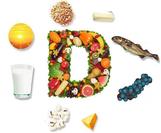 I know when on my own journey to start a family and after having 3 losses and all screening through the pregnancy loss clinic revealed that all investigations were clear. I decided to do some digging, along with frequent Acupuncture & Reflexology treatments, I had food intolerance blood tests done(which I now offer in my clinics), eliminated all the foods I was intolerant to and then with the help of Ciara Ryan Nutrition took a closer look at my diet, added supplements, complete gut healing plan along with preconception vitamins, omega 3 oils etc. I had my vitamin D levels checked and was shocked to discover that I was very deficient (2 levels of deficiency under 25 is very bad and under 50 is deficient, optimal levels should be just over 100) my levels were 47 so I took an intensive course of vitamin D for 6-8 weeks and got my levels back up to 120. The following month after I got my levels back up we conceived our little miracle (He is now almost 9 months old, wonderful little ball of energy, and on the move! watch out world) So here is an interesting trial to support the above, that vitamin D deficiency may be a risk factor for recurrent pregnancy losses: http://humrep.oxfordjournals.org/content/early/2013/11/22/humrep.det424.abstract?maxtoshow&hits=2&RESULTFORMAT&andorexacttitle=and&andorexacttitleabs=and&fulltext=ivf%252C+pregnancy&andorexactfulltext=and&searchid=1&usestrictdates=yes&resource&ct 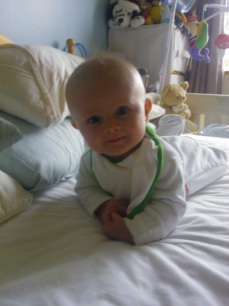 Well the time has come for me to come back to work after having this amazing little fella in October. I have found a fantastic childminder who will make things a whole lot easier leaving him and has me feeling very happy & excited about getting back to work treating you guys out there with the wonders of Traditional Chinese Medicine and Acupuncture. Some exciting developments have happened that I am delighted to share with you all; I am now a qualified GentleBirth Instructor and there are more tests available through the Fitzwilliam Food Test Clinic for Vitamin D levels,Helicobacter Pylori Screen and Rheumatoid Arthritis Screening. My prices have also changed too so lots more updates ahead for Anam Mai Acupuncture! stay tuned ;) 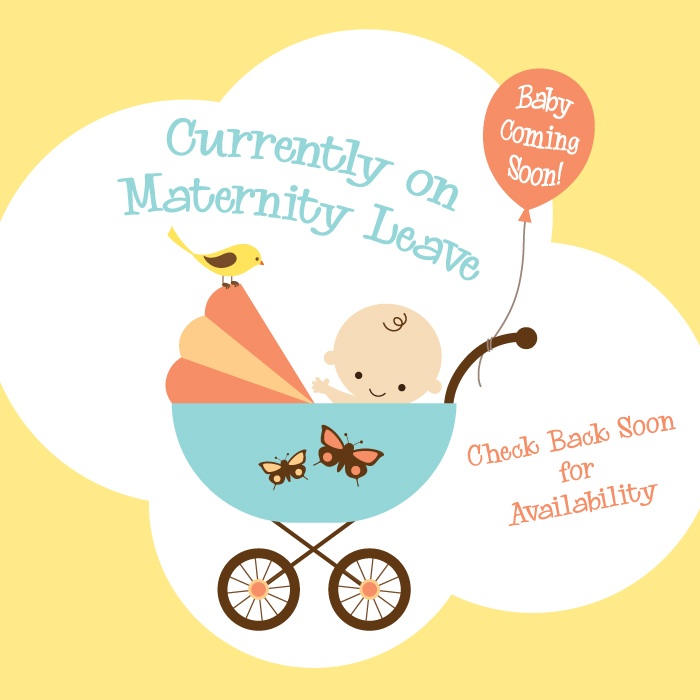 Well folks even though I've been out of action the last few weeks with my broken ankle it's now officially time for my maternity leave! I'll still be contactable by phone if anyone needs anything and I am very lucky to have two fantastic friends who just so happen to be fantastic acupuncturists too. They will be covering my clinics and clients so here are their details: the wonderful Sabine www.shendao.ie and the amazing Sharon www.acupuncturedrogheda.com 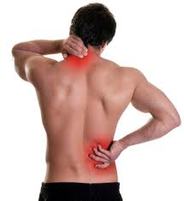 Back pain is one of the most common reasons people have to take sick leave and also go and see a health care provider. It has been estimated that up to 80% of the world's population will suffer from back pain at some point in their lives. One of the top causes of back pain are sprains, caused by overstretching one or more ligaments in the back and strains, a rip or a tear in the muscle caused by a sudden force. All of these can happen from injury, poor posture and improper lifting. Another cause of back pain can be caused from a herniated disc in the spine, which means that the disc bulges out from its place between the two vertebrae. And we cannot forget to mention Sciatica which is another form of back pain. You will know you have sciatica when you have pain that radiates down into the buttocks and leg. What is happening is a large nerve in the lumbar spine called the sciatic nerve has been irritated. This can happen from sprains, strains, herniated discs and even in some cases pregnancy. So how can Acupuncture help you with your back pain? The use of acupuncture to treat back pain has increased dramatically in the past few decades. This is thanks to placebo-controlled studies that have validated that Acupuncture is a reliable method of pain relief. The results of a recent study published in the Clinical Journal of Pain provide further proof that acupuncture is a safe and effective procedure for low-back pain, and that it can maintain positive outcomes for long periods of time without producing the negative side effects that often accompany more traditional back pain remedies. In a Swedish hospital study with patients who experienced chronic low back pain, doctors concluded that acupuncture provided long term pain relief. They also observed improvement in activity levels, better sleep, and consumption of significantly fewer analgesics for the acupuncture group as compared with the group receiving a placebo treatment. When you attend for a treatment, Acupuncture needles are placed into the skin to stimulate pathways that travel through peripheral nerves to the spinal cord and brain. This causes your body's natural pain killers, called endorphins to increase along with other chemicals in your body to change, unblocking trapped energy and restoring its flow. We would like to offer Meath Coaster readers a 20% discount on their first back treatment. This offer is valid for the whole month of September, just mention this article on booking your appointment. As always, if you would like to get relief from your back pain, we'd be happy to tell you more and answer any questions you may have. Go on you deserve to be pain free and full of life, so why not give Acupuncture a try! 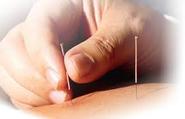 Acupuncture is a safe and effective healing treatment that is backed by more than two thousand years of practice and research. It is used worldwide for a wide range of conditions. Generally, people find an acupuncture treatment to be a relaxing experience. This is especially so after they get over any initial concerns over needles. Your First Visit Generally, your first visit is longer than your follow up visits as you will be asked questions and a detailed medical history is taken to help the Acupuncturist make a diagnosis. This is very important and while many of the questions might seem slightly odd or irrelevant to your condition there is a very good reason behind these questions. Other diagnostic tools such as looking at your Tongue and feeling your Pulse allow us to tailor the treatment specifically to you. Many people may experience a broad range of changes after receiving acupuncture for a specific complaint. After the treatment it is common for an acupuncturist to offer a prognosis along with a basic treatment plan. They are also likely to offer various beneficial lifestyle changes which may help to improve your overall condition. These may include dietary changes, exercise, meditation, etc. • What are the needles like? The needles used within acupuncture are both sterile and extremely thin. Most people are surprised to see how thin the needles actually are. The most commonly used needle is a 25 mm (1 inch) .25 mm width needle. • What will I feel? The sensation you will feel when being needled is generally fairly minimal. In some you will feel almost nothing, while in others the needle will be rotated slightly until you feel a heavy or distended feeling indicating the arrival of qi. • How long will the treatment last? After the needles are inserted you are usually left to rest for a period of 20 - 45 minutes. Most people feel fairly relaxed during this period and many simply fall asleep. What other techniques may be part of my treatment? Acupuncture is simply one aspect of Traditional Chinese Medicine. During your treatment your acupuncturist may choose to use additional techniques depending on your condition:• Electro-acupuncture - the acupuncture needles are stimulated with an electric charge delivered from a machine. This is used often and effectively in patients dealing with pain. • Moxibustion - this involves the burning of an herb either on the top of a needle or by Moxa stick. This is used often in patients with Arthritis & breech presentation babies. • Cupping - this involves the use of glass or bamboo cups which are placed on the body with suction to help remove toxins and muscle tension, immune issues such as a cold as well as for pain. If you haven’t tried acupuncture yet we'd be happy to tell you more and answer any questions you may have. 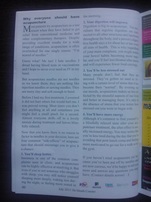 Why everyone should have acupuncture Most patients try acupuncture as a last resort when they have failed to get relief from conventional medicine and other complementary therapies. Despite providing excellent results for a wide range of conditions, acupuncture is often overlooked for one single reason: “I'm scared of needles.” Guess what? Me too! I hate needles. I dread having blood tests or vaccinations and I hope to never ever need an IV in my hand. But acupuncture needles are not needles as we know them; they are nothing like injection needles or sewing needles. They are teeny tiny and soft enough to bend. Before I had my first treatment, I assumed it did not hurt others but would hurt me. I was proved wrong. Most times you don't feel anything at all and sometimes you might feel a small pinch for a second. Almost everyone drifts off to a lovely snooze during treatment and leaves blissfully relaxed. Now that you know there is no reason to factor in needles in your decision, here are four common “side-effects” of acupuncture that should encourage you to give it a chance: 1. You'll sleep better. Insomnia is one of the common complaints seen in clinic, and acupuncture can be highly effective at resolving it. But even if you’re not someone who struggles with sleep, you may still notice yourself sleeping more deeply, waking less during the night, or feeling more rested in the morning. 2. Your digestion will improve. Digestion is big in acupuncture. The meridians that regulate digestion are connected to all other structures and functions throughout the body, and a person’s digestive health says a lot about his or her overall state of health. This is why regardless of your main complaint, you might notice your bowel habits becoming more regular, and you’ll feel less bloated after meals and will experience fewer food cravings. 3. You'll be less stressed out Many people don't feel that they are stressed. They’ve gotten so used to living with a certain level of stress that it has become their “normal”. By evening out our moods, acupuncture makes us less affected by the stressful aspects of our lives and better at managing them. It’s only in the absence of stress that you notice how stressed out you were to begin with. 4. You'll have more energy Although it’s common to find yourself in a blissfully relaxed state after your acupuncture treatment, the after effect is usually increased energy. You may notice that you’re less tired during the day that you're avoiding that post-lunch coma and feeling more motivated to go out for a walk or hit the gym. If you haven’t tried acupuncture yet because you've been put off by needles and are now curious, we'd be happy to tell you more and answer any questions you may have. |
AuthorNiamh Muldowney, owner, Anam Mai Acupuncture Archives
June 2016
Categories |
Clinic DetailsThe Treatment Room, CityNorth Hotel, Gormanston, Co. Meath
|
Copyright © 2022 - Niamh Muldowney, Lic. Ac., Cert Nanjing, Dip. Ac., Dip. BM, MAFPA |
What our Clients have to say....Karen, DublinI’d like to thank Niamh for all her treatment and care during my last pregnancy. I came to Niamh requesting help to keep my blood pressure down because on my previous pregnancies I was on medication for BP which I wanted to avoid on my third pregnancy. Niamh treated me on a regular basis and I avoided medication and high BP issues. I also had 2 previous inductions and I really wanted to avoid a third induction. Niamh started pre-induction treatment a few weeks before my due date and then worked up to the full induction the week of my due date and I was delighted when I started labour myself 3 days after my due date and baby was born soon after that. Niamh did a great job and gave me the outcome that I wanted. I’d highly recommend Niamh because she is friendly, approachable, very professional and thrives to achieve the best treatment for her clients.
|
|
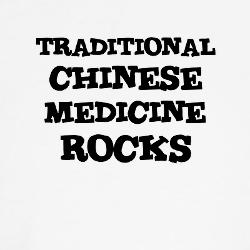
 RSS Feed
RSS Feed